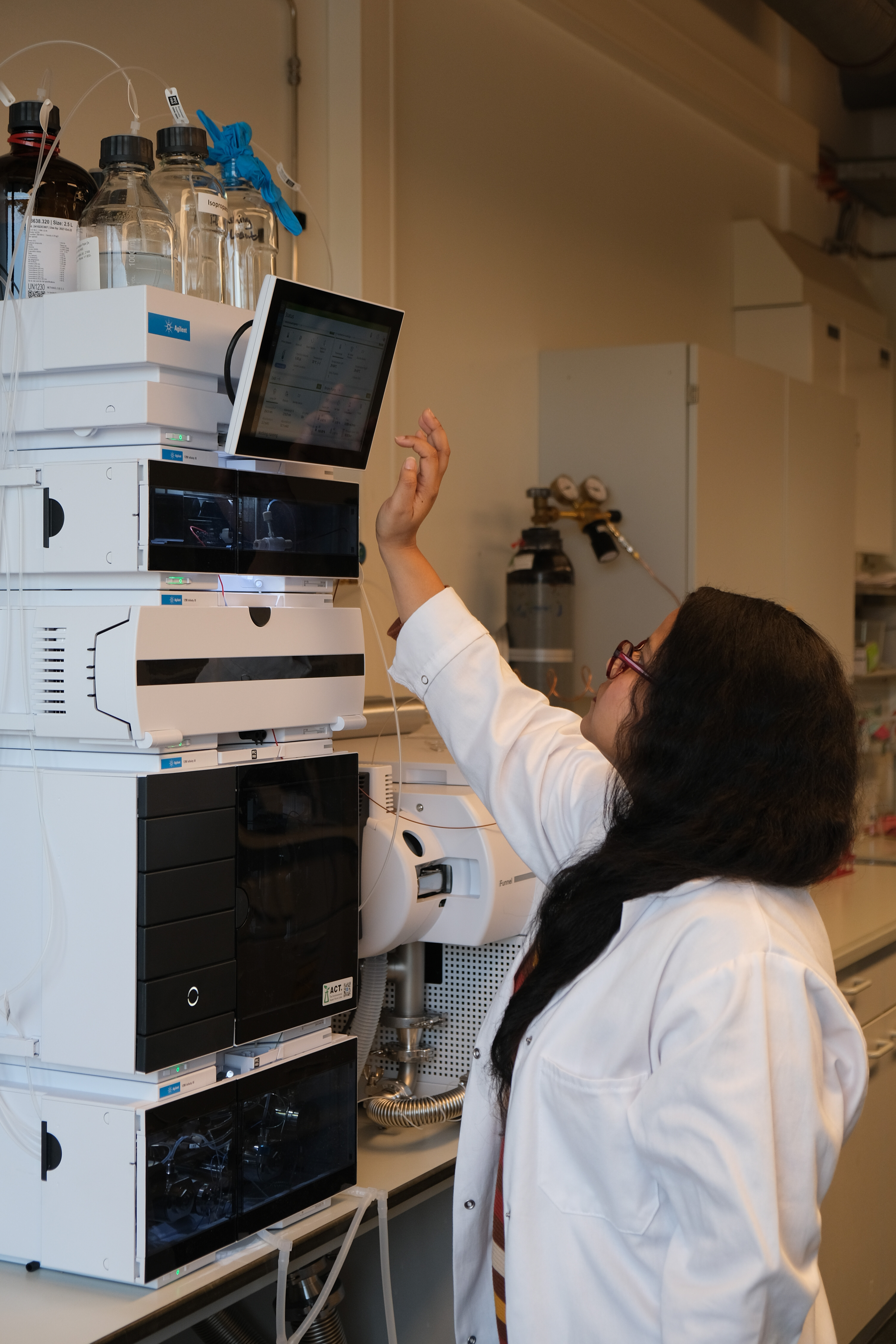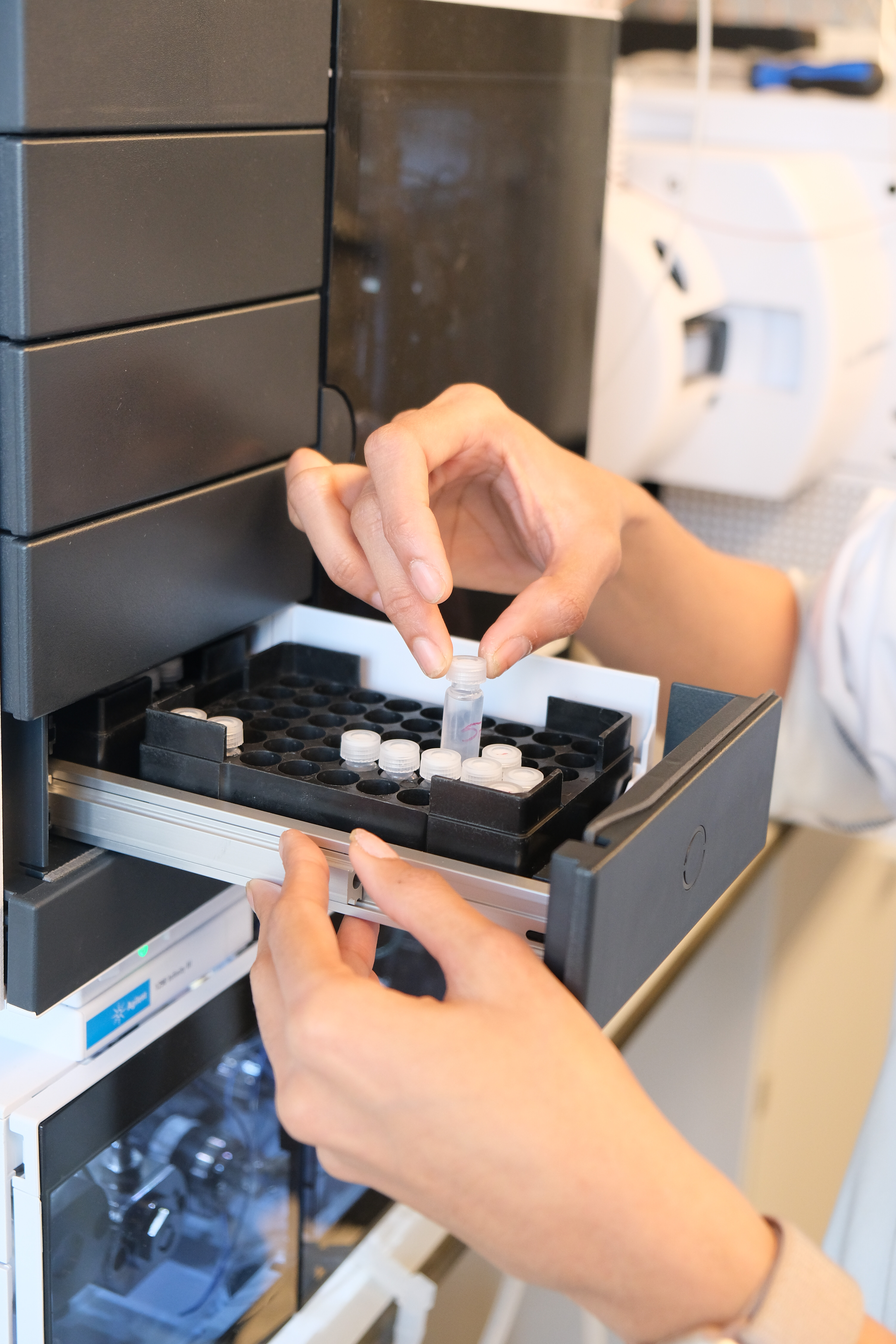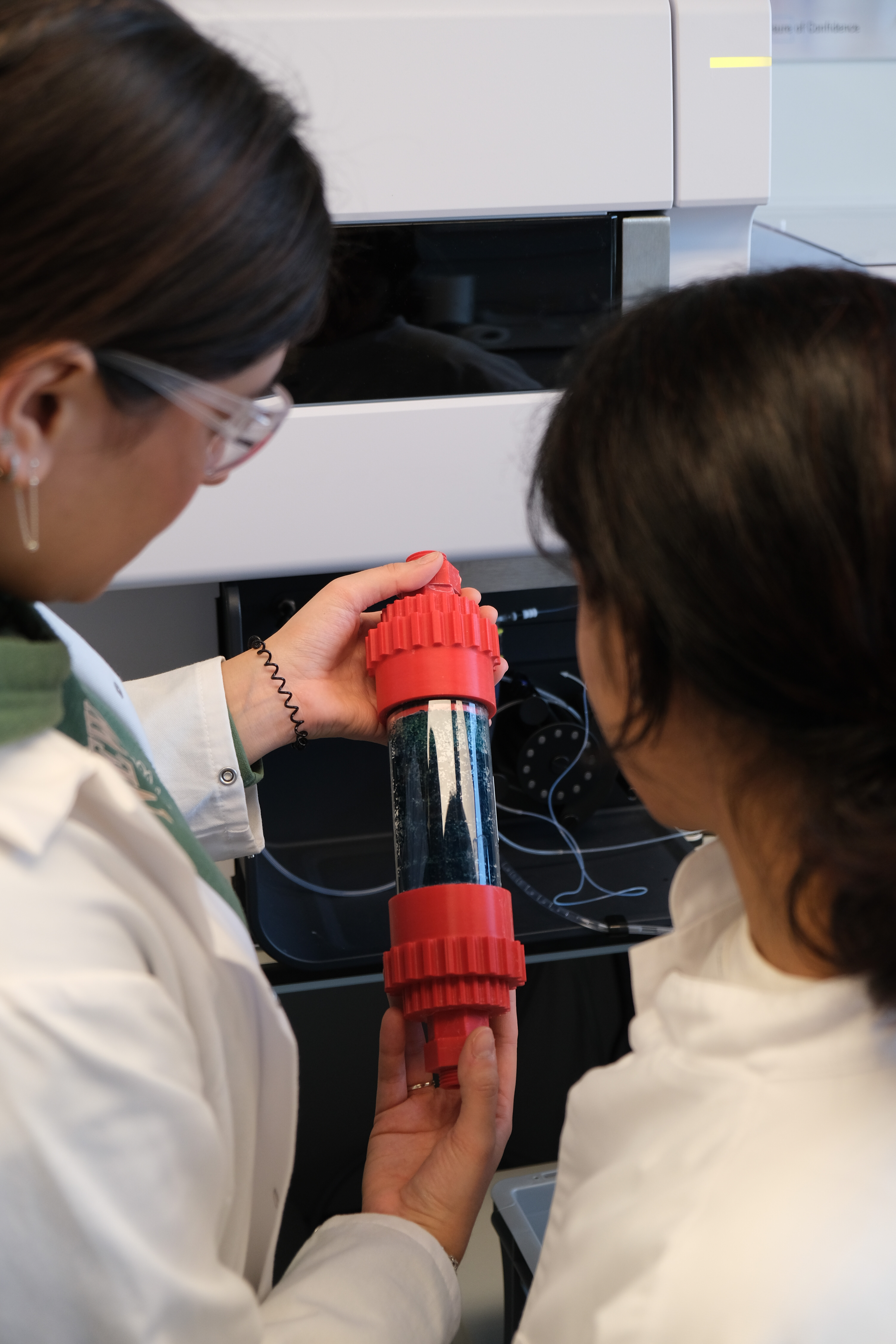
Project support from instrAction
We support you in the development and design of your water treatment projects.
We offer comprehensive expertise in the removal of PFAS or heavy metals from industrial wastewater or drinking water in order to successfully implement your projects and plans in combination with our selective absorbers.
Phase 0 - Preparation

Questionnaire:
Information of the project / challenges
Expected kind of PFAS or heavy metals, concentration, volume, volume/time, origin of the solution, known and unknown by-products, targeted limits, site requirements
Availability of samples
Timeline of the project
Further processing like incineration or regeneration
Phase 1 - Analysis

Tasks:
Quantitative analysis of 20 PFAS according to European guidelines with HPLC-MS/MS
Qualitative analysis of 149 PFAS possible with HPLC-MS/MS
Quantitative analysis of heavy metals and precious metals with ICP-OES or AAS
-----
Results:
Assessment of the ability to reduce/remove the compounds with instrAction resins.
The results will guide to the next steps, e.g. selection of resins etc.
-----
Scope of Delivery:
Formal analytical report
First project layout
-----
Timeline:
2 weeks
Phase 2 - Feasibility

Tasks:
Batch-absorption test (Isotherms)
Dependency of depletion on flow rate (productivity) is investigated
Break-through experiments
Fractions are taken twice a day, leading to ca. 50 samples (including blanks, feed etc.), which are analysed with
HPLC-MS/MS for the individual PFAS
ICP-OES or AAS for the individual metal
If regeneration is desired from customer site, a corresponding protocol will be developed and charged separately
-----
Results:
Individual depletion rates and a first capacity assessment for the different compounds in the solution
Estimation of lifetime
Assessment of required resin volumes, rough calculation of exchange frequency etc.
Necessity of pre-treatment like filtration or pH-adjustment
In the case regeneration is desired, a corresponding protocol is developed and tested, which may cause extra costs
-----
Scope of Delivery :
Written report and discussed in a meeting (online or on-site)
First process layout and calculation of potential resin costs.
-----
Timeline:
6-10 weeks
Phase 3 - Lab Pilot

Tasks:
The most promising resin or resin motive will be used for pilot testing
Resin volume of 0,3 – 1 L
Scale-up tests, including flow rate variations, investigation of depletion rates, study of back-pressure behaviour
At instrAction, customer site or third-party site
Fractions (ca. 100) will be taken and analysed for
PFAS will be analysed with HPLC-MS/MS, heavy metals with ICP-OES or AAS
-----
Results:
Prove, that the system works like expected after feasibility study and a potential change in particle size.
Process parameters will be proven or adjusted.
Reliable, meaningful data are available, which allow a more precise calculation of the final process.
The application protocol is ready for further scale-up and transfer to customer.
-----
Scope of Delivery:
Written report or Manual
Instructions how to handle and implement the resin, including process parameters, detailed advice for use, calculation of final process
Detailed proposal for the method transfer and on-site pilot
-----
Timeline:
6-8 weeks
Our Team of Experts
Our team of passionate and highly motivated scientists is highly skilled in PFAS analysis, bringing over 60 years of combined experience and specialized knowledge to ensure the highest quality results. With a strong foundation in analytical chemistry and environmental science, our international team utilizes state-of-the-art technology and methodologies to detect and quantify PFAS compounds with precision. We are committed to providing accurate and reliable data to support your environmental and health safety needs, adhering to rigorous quality standards for trustworthy data and informed decision-making. We pride ourselves on our collaborative approach, working closely with clients to understand their unique challenges and provide tailored solutions for regulatory compliance, environmental monitoring, and health risk assessments.

Dr. Martin Welter
Chief Scientific Officer
University of Tübingen
PhD. in Chemistry
University of Würzburg
Master in Chemistry

Subhasri Tejaswini Vaddi
PFAS Project Manager
University of Duisburg-Essen
M.Sc. Water Science
GITAM University
B.Tech. Biotechnology

Fariha Bristy
Head of Analytics and Methodology
University of Duisburg-Essen
M.Sc. Water Science
University of Development Alternative
Bachelors in Pharmacy


